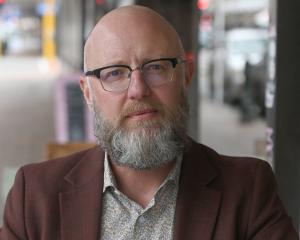
Reports of hospitals around the country under pressure from an outbreak of Respiratory Syncytial Virus (RSV) continued yesterday.
Cases usually peaked in August and September in Otago and Southland, but both of the region’s main hospitals were already brimming with young patients afflicted with the virus.
Dunedin paediatrician Prof Barry Taylor said methods to prevent viral infections should be familiar to most people from the response to the Covid-19 virus.
"The spreading of these viruses is very similar, so the way of stopping the spread and protecting vulnerable babies under 2 years of age does not really differ."
Keeping sick children home from school or day care, washing hands regularly, and coughing or sneezing into your elbow were all good methods for breaking the chain of infection.
It was particularly important to stop symptomatic children from visiting patients in children’s wards, intensive care and critical care units, Prof Taylor said.
Children’s wards at Dunedin and Southland hospitals were expecting the discharge of several patients yesterday, easing pressure on available beds.
A mother who did not want to be identified contacted the Otago Daily Times this week to say how worrying it was to have a sick child on her hands, given the news about RSV.
She said her 3-year-old son had been sick with a respiratory illness since last Friday.
He had a bad cough, was having trouble breathing and had a fever over 40degC.
By Monday evening, they had visited the emergency room three times.
Emergency room doctors said it was likely to be croup, but the mother now wondered whether it was a case of RSV.
He was not given any tests to check for RSV during his hospital visits or at a follow up GP consultation.
"Croup and RSV have so many similarities that without a test we don’t know [what caused the illness]."
Southern Communities Laboratory microbiologist Dr James Ussher said in general the laboratory tested only patients admitted to hospitals and the number of community cases of RSV was likely to be higher.
RSV is tested with a nasopharyngeal swab, which is the same method used for a Covid-19 test.
These tests could be distressing for children, and a positive response did not change the treatment for a patient compared to other similar conditions, Dr Ussher said.
"If a test will not change clinical management, then there is no reason to put the child through the distress of having a sample collected."
What is RSV?
• A viral infection of the lungs and airway
• Common in children, but more severe for infants
• Severe infections can cause pneumonia or bronchiolitis
• Symptoms include difficulty breathing, wheezing, lethargy and feeding poorly
• Concerned parents should consult their GP or call Healthline 0800 611 116












